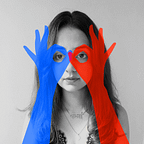Privacy is only a setting
My obsession with the topic began in early 2014 when a worldwide survey affirmed that even when the majority of people were thrilled by the ease and convenience of their smartphones and Internet services, they weren’t willing to trade their privacy to get more of it. I have been watching documentaries, reading books, articles, and white-papers…all in an attempt to get my head around the nature of our privacy in the internet era.
But convenience has always trumped effort. And our right to privacy lately seems to be losing its battle and the war.
In 2015, our generation was touted to be the “Google generation” at DAVOS. Anthony Goldbloom, a young tech entrepreneur, and a well-versed panelist became our mouthpiece when he insisted “I trade my privacy for the convenience. Privacy is not something that worries me. Anyway, people often behave better when they have the sense that their actions are being watched.”
A lack of privacy does not mean more transparency. The general disregard towards preserving our right has been stark as compared to any of the past generations. This argument that we don’t need our privacy because we have nothing to hide is like arguing we don’t care about our free speech because we have nothing to say.
“Privacy isn’t about something to hide. Privacy is about something to protect. That’s who you are. That’s what you believe in, that’s who you want to become. Privacy is the right to the self. Privacy is what gives you the ability to share with the world who you are, on your own terms, for them to understand what you’re trying to be. And to protect for yourself the parts of you that you’re not sure about, that you’re still experimenting with. If we don’t have privacy, what we’re losing is the ability to make mistakes. We’re losing the ability to be ourselves. Privacy is the fountainhead of all other rights. Freedom of speech doesn’t have a lot of meaning if you can’t have a quiet space. . . . to decide what it is that you actually wanna say. Freedom of religion doesn’t mean that if you can’t figure out what you actually believe without being influenced by the criticisms and sort of outside direction and peer pressure of others. And it goes on and on and on. But privacy is baked into our language, our core concepts of government and self in every way . . . without privacy, you won’t have anything for yourself. So when people say that to me, I say back arguing that you don’t have privacy because you have nothing to hide is like arguing that you don’t care about free speech because you have nothing to say.” — Snowden
Snowden’s riveting words about the need for protecting our privacy has invited a lot of criticism and debate over time, but it also haunted me and kept me thinking.
The year 2017, was an unfathomable blow to the case of public privacy. Alexander Kabakov, a young Russian founder, launched a ‘revolutionary’ dating app FindFace allowing its users to photograph people in a large crowd and work out their identities, with 70% reliability…within seconds. The algorithm excelled in looking for similar people…so one could just upload a photo of a movie star you like, or your ex, and then find 10 girls who looked similar to her, and send them messages. Kabakov, in his interview, claimed that public anonymity was indeed dead and that life in the modern world meant that people learned to live with the constant spotlight of technology.
With the aggressive and rapid demise of our basic rights to privacy in plain sight, it would be careless of us to only rely on businesses or governments to protect us. A complete lack of education and no desire to educate the masses on this issue has already affected this cause critically.
Each individual holds the power to protect our way of life. If we take responsibility — we could prevent anonymity in public to become a thing of the past.
Hollywood has been taking initiative in furthering the cause. James Ponsoldt’s movie The Circle ( 2017 ) took the conversation of data privacy and transparency mainstream with actors like Tom Hanks and Emma Watson playing the fitting roles of the real-life David and Goliath.
Emma Watson: Secrets are lies. Secrets make crimes possible… Secrets need accountability.
Tom Hanks: Knowing is good but knowing everything is better.
The sharp dialogues and a vivid script portrays the 2 sides of this long-standing debate. This movie is a must watch ( if you haven’t seen it already)!
“If those of us in positions of responsibility fail to do everything in our power to protect the right to privacy, we risk something far more valuable than money. We risk our way of life.”
-Apple CEO Tim Cook
